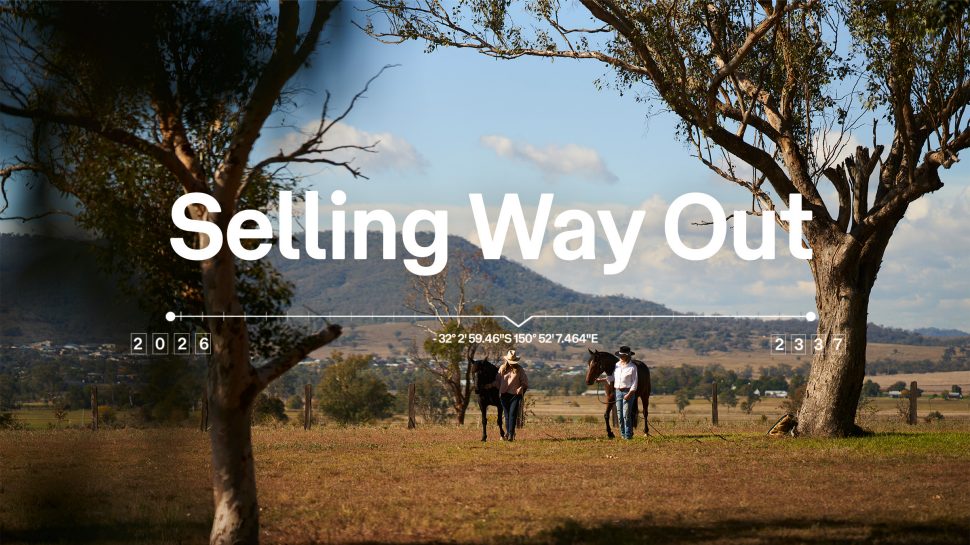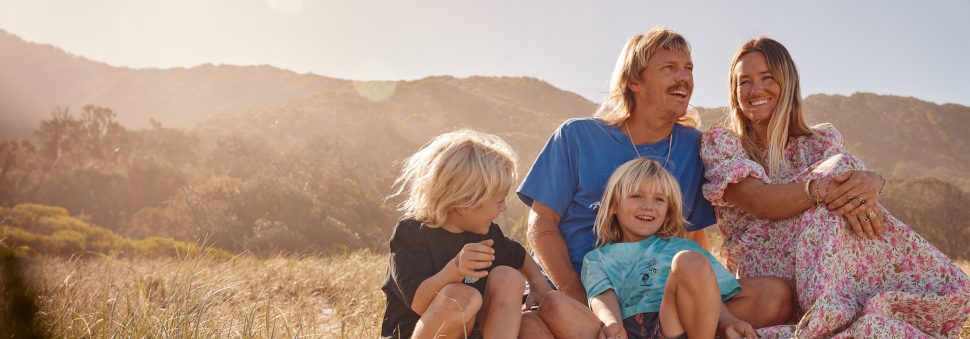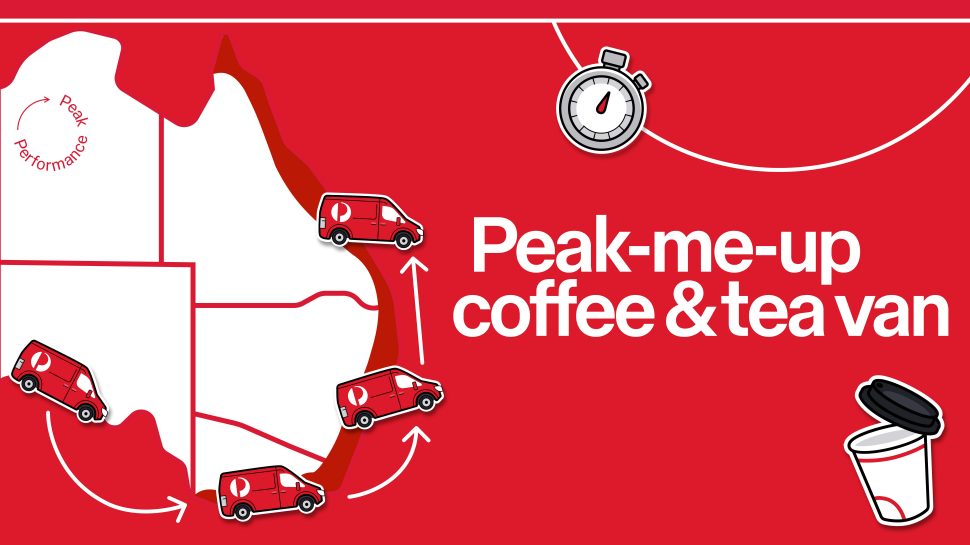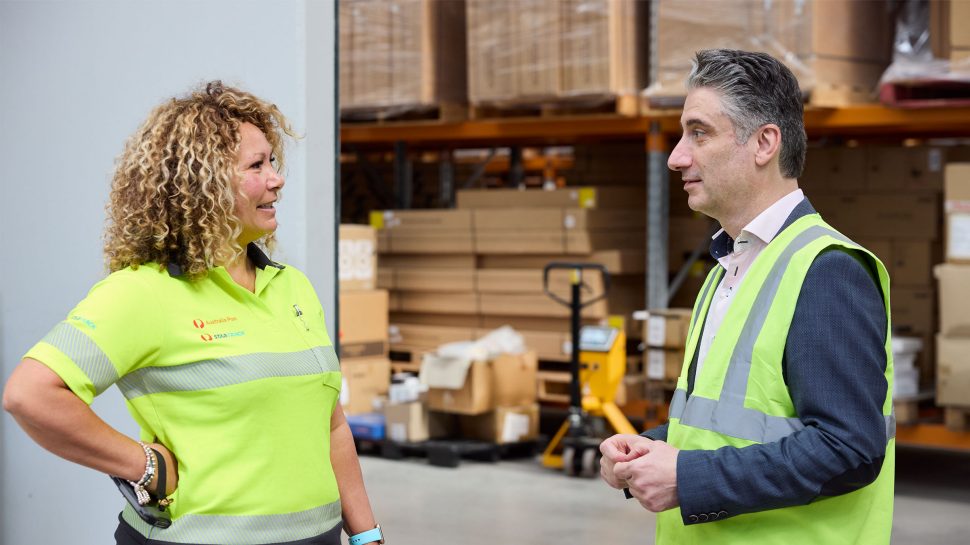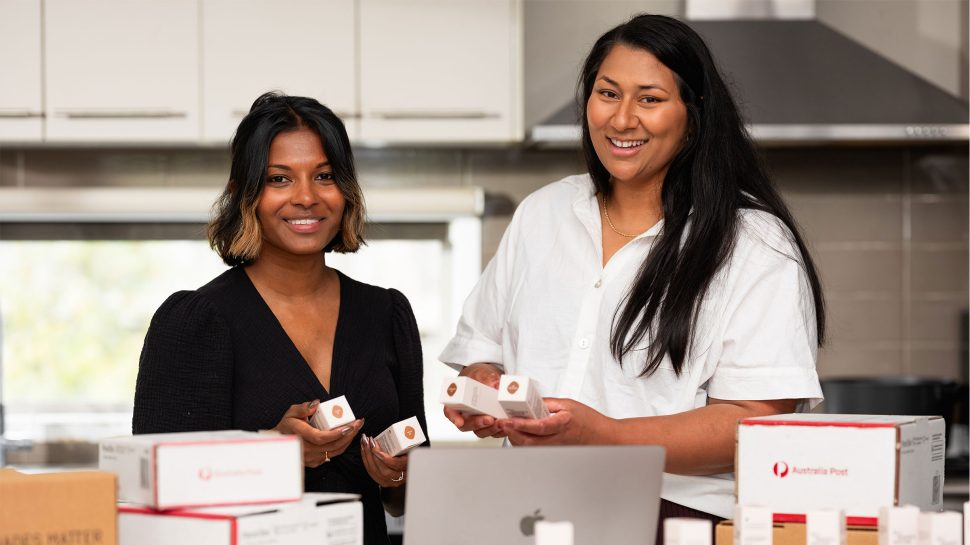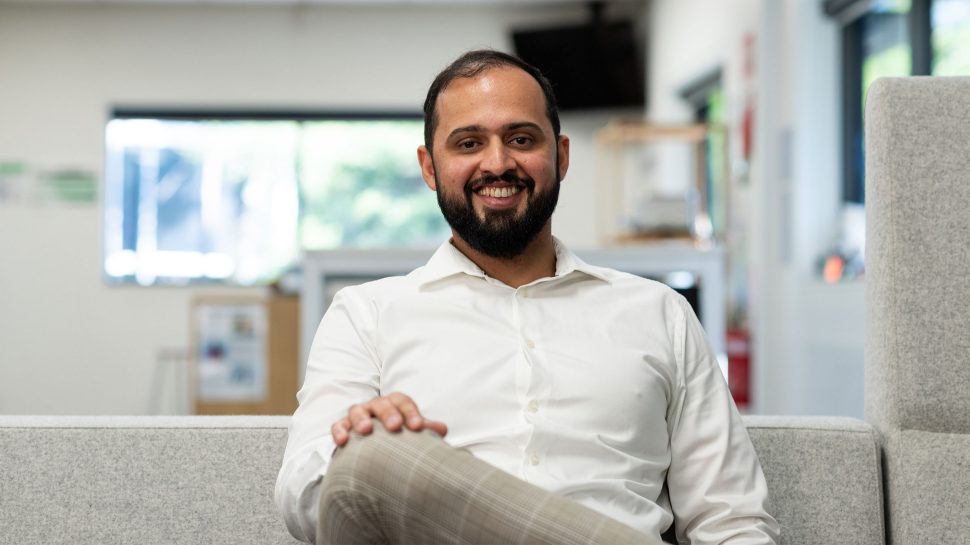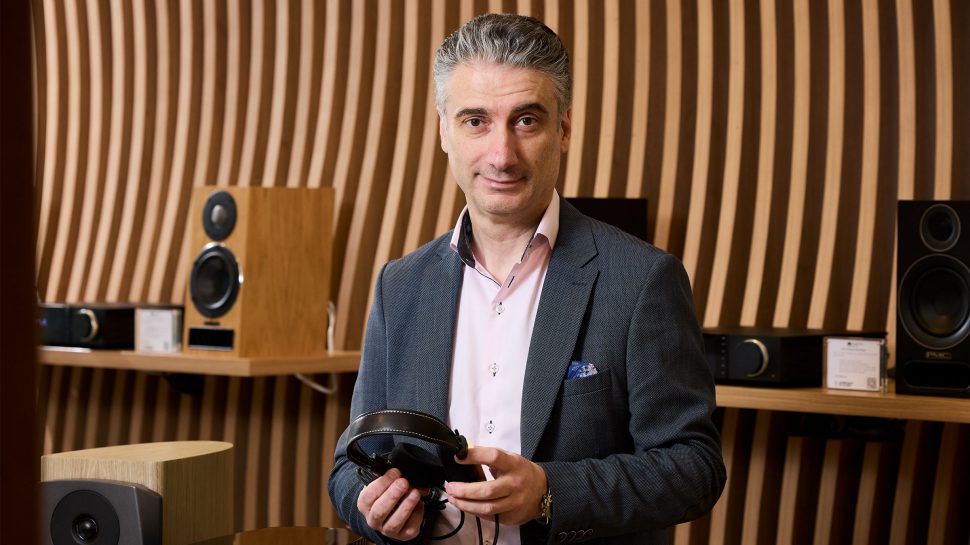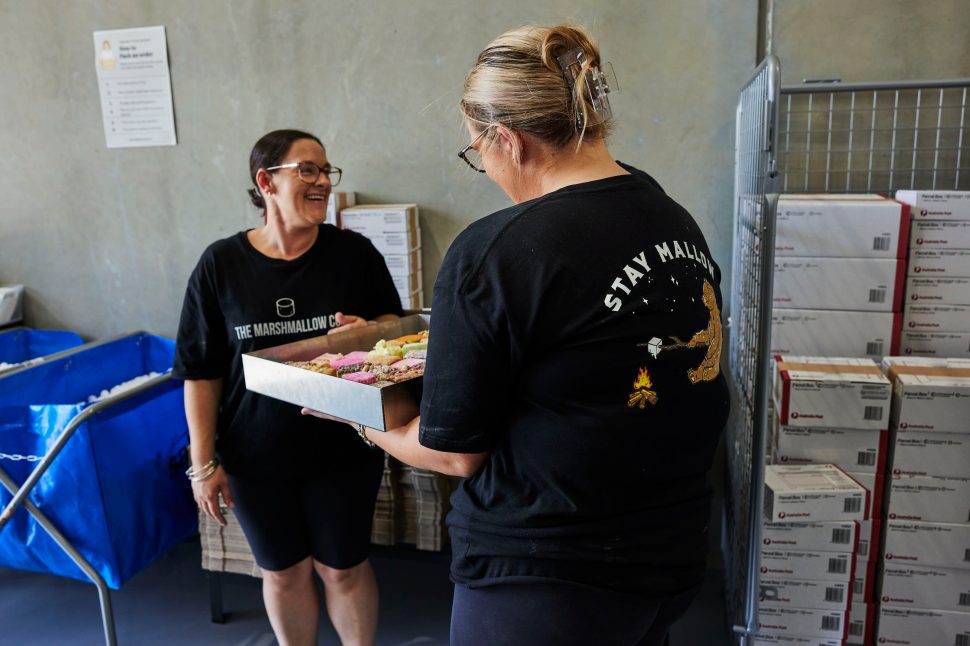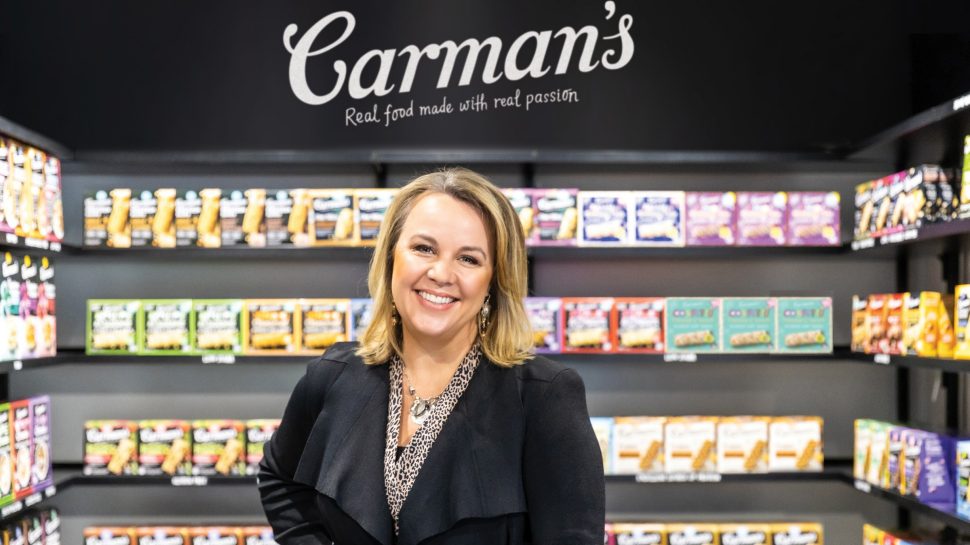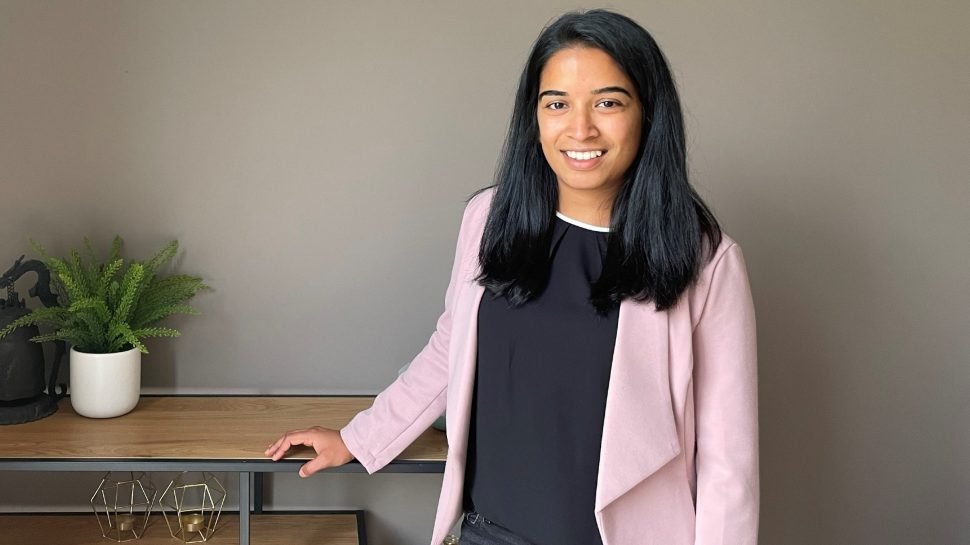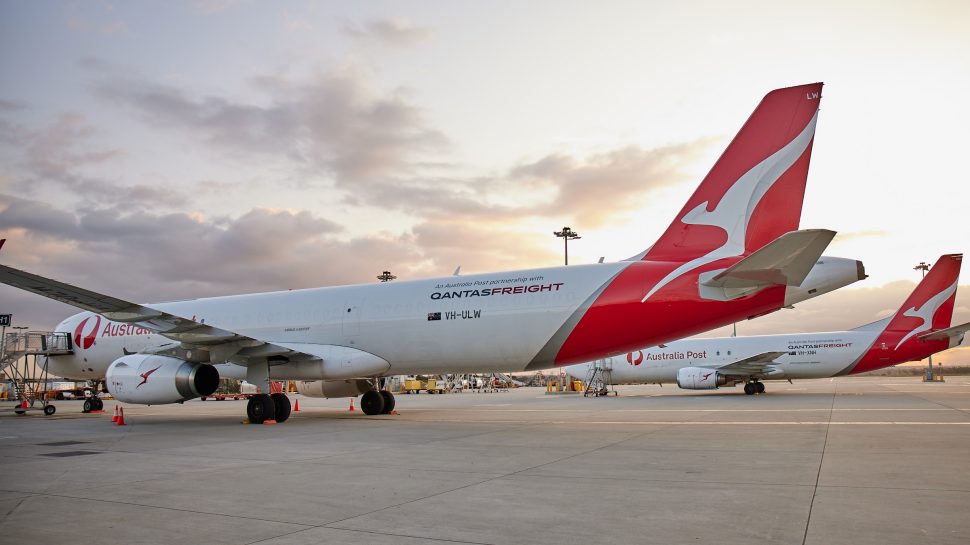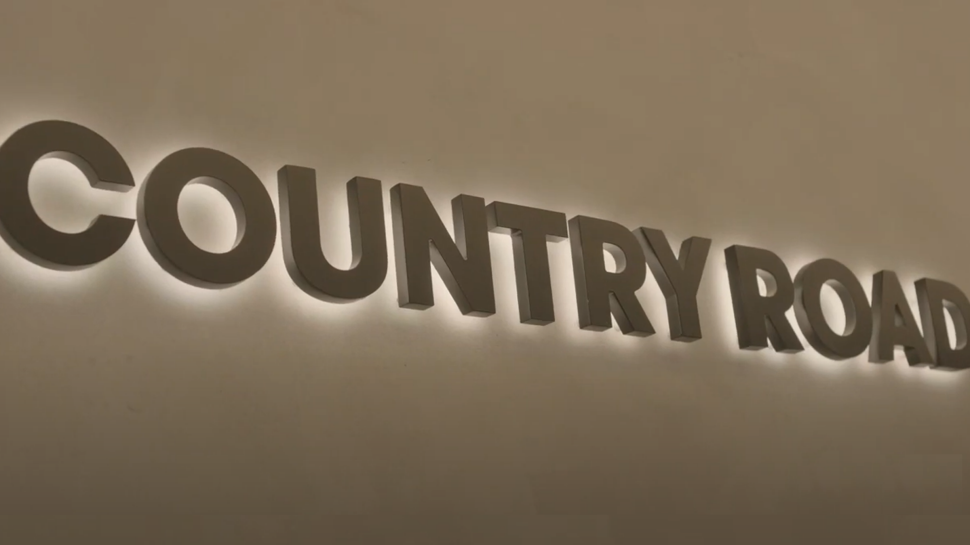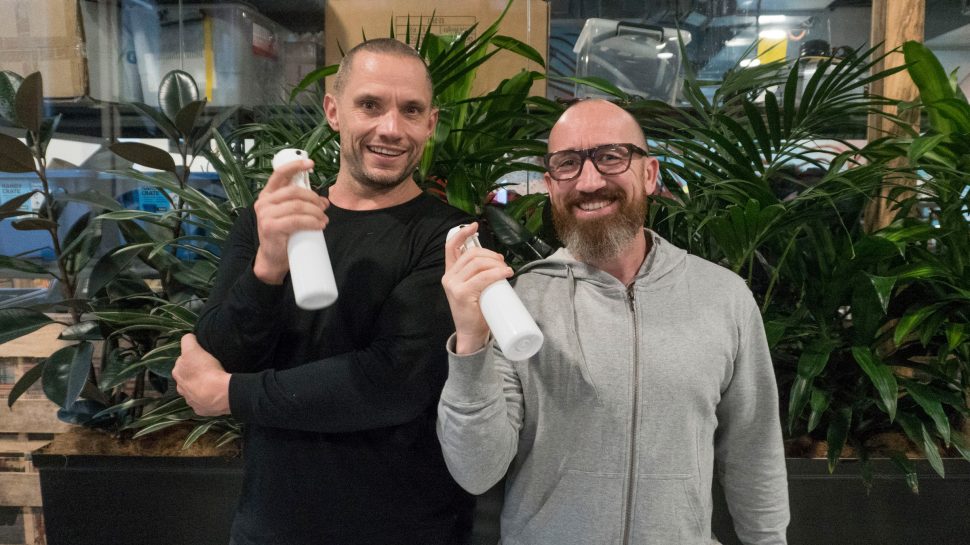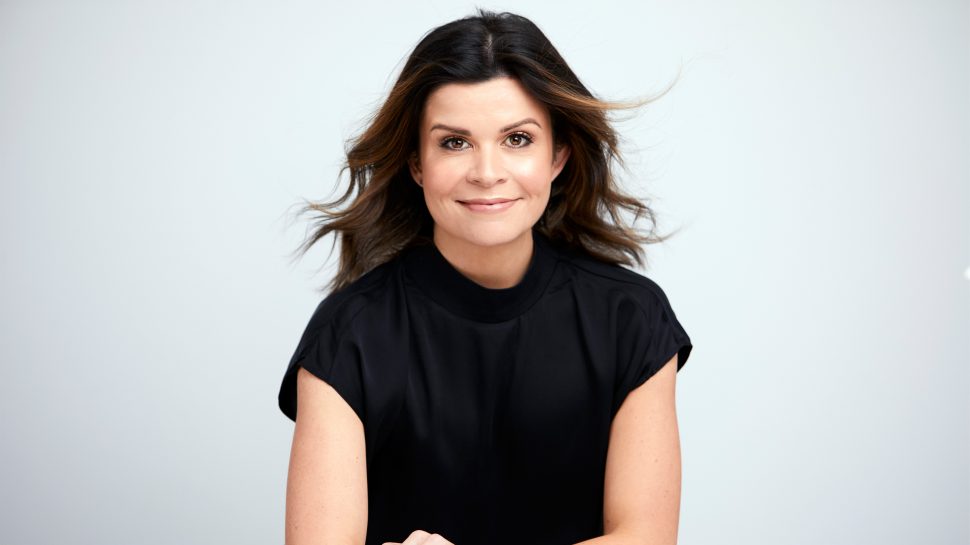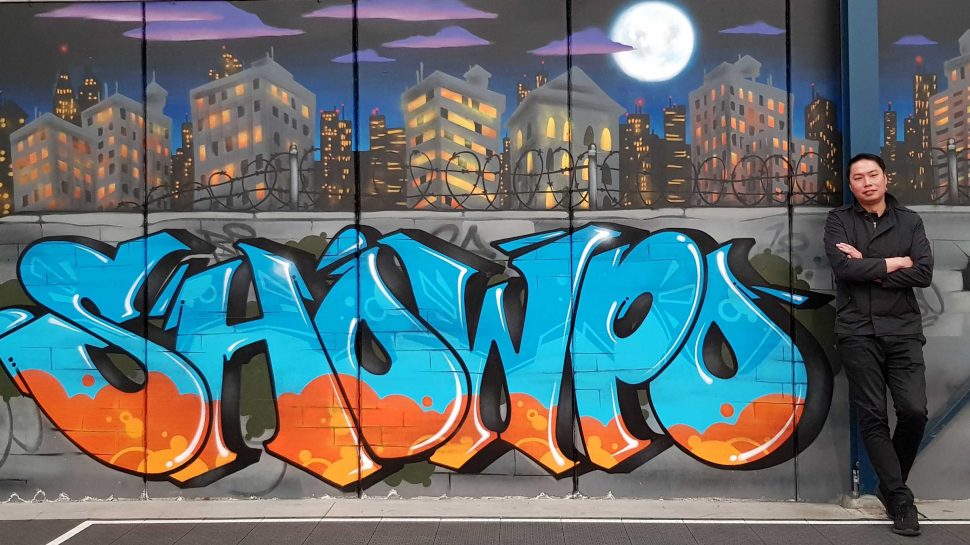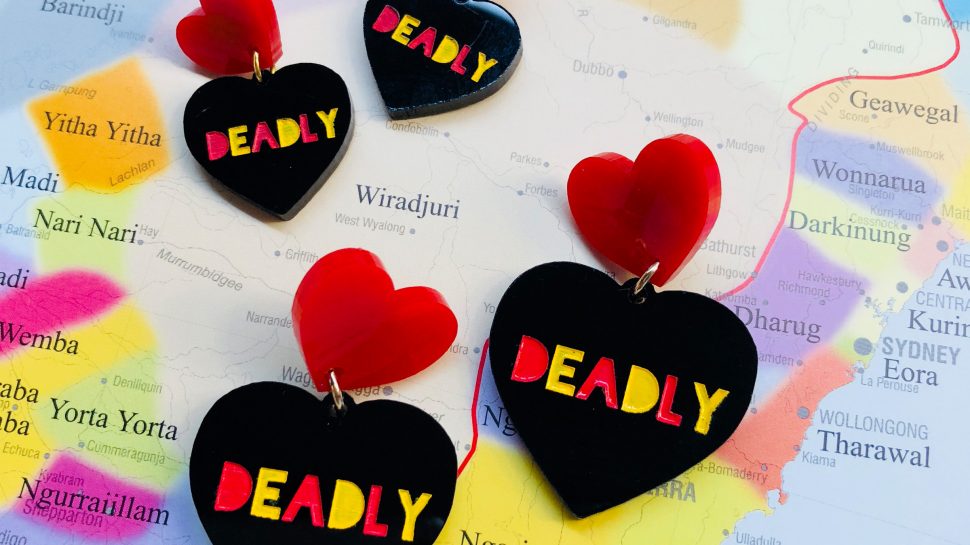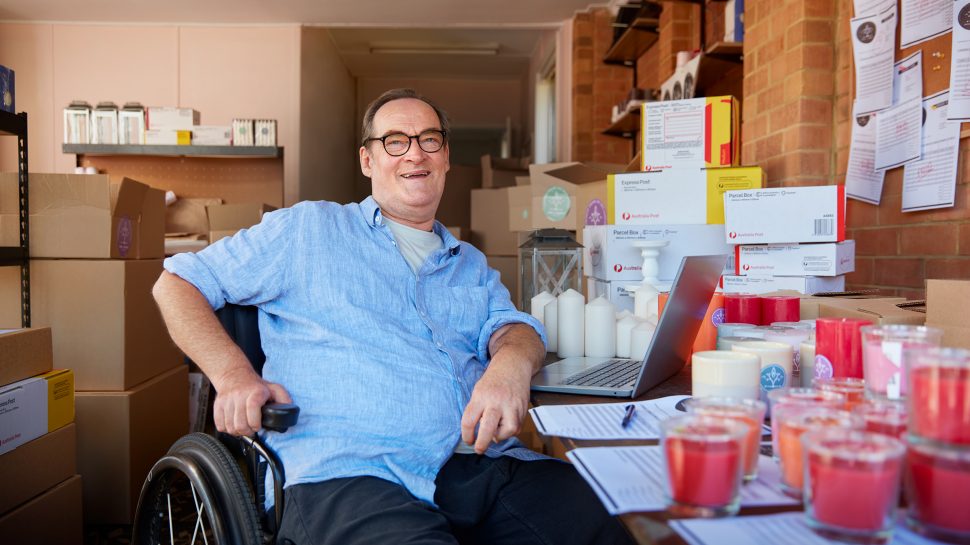Video: In farmland, cattle stand in the shade by a fence. Nearby, two women tend to horses. The title 'Selling Way Out' appear in large white letters above the Australia Post logo. On a line underneath the title, a set of map coordinates glide back and forth. The numbers 2026 and 2337 sit at the far ends of the line.
A woman's hands select dark thread from a wood rack and insert it into a sewing machine. The blond woman wears a wide-brimmed hat with a layered handmade band. She sews a band for another hat then adjusts its bow. The Australia Post logo sits in the top right corner of the screen.
Audio: Woman: When I was living in Sydney, I think I was pursuing a career of what I thought I should be doing rather than maybe what I wanted to be doing. I felt disconnected to my corporate career, and I knew that when I was rebuilding this life that I wanted for myself, it would have to be something that I enjoyed.
Video: Smiling, the woman stands before hats displayed on a wall and table. An ornate light installation made from dry foliage dominates the sunny room's ceiling. Text: "Laura Hall, Founder, PHYLLi Designs." In a workshop, Laura sprays a hat as she spins it on a turntable. She sets fire to the hat. After the flames die, the pale hat has dark mottling.
Audio: Laura: I am a self-taught hatmaker. I started at the markets in Sydney and made it six months in business, but when COVID hit, my entire business just fell off a cliff. So I packed up a truck and I flew up the highway to Scone.
Video: A car follows an elevated highway through farmland. The coordinates line reappears. The coordinates settle into the middle and transform into the words 'PHYLLi Designs'. Laura drives along a tree-lined road then along a dirt track towards a farmhouse. Woven straps and hats are displayed on shelves. Bundles of cloth strips hang from long racks. Using a metal punch, Laura embosses letters into a leather hatband.
Audio: Laura: I've always had a connection to the country, having my family here, and my dad, at the time, was quite unwell. It was so special to know that I was going to be able to come home. Just before he passed away, I was explaining how I want to build hats that tell a story, and he gifted me a collection of his personal hats. One of the things that I love is that when you make a hat it becomes an heirloom piece to be passed down from generation to generation.
Video: A leafy bush town of low buildings sit near the foot of hills. In a sunny room, Laura and other women work on hats.
Audio: Laura: Probably for the first 12 months of being back here in Scone, I ran my business from my dining room table, and when we opened the store, we had everyone that you can imagine within the community swinging by to come and say hi and show their support.
Video: A postie pulls up outside the glass shopfront. Laura comes out.
Audio: Postie: Hello. Laura: Hi, Charlie. Charlie: How you doing, alright? Laura: Good!
Video: Laura writes in a card then packs a hat into a box. On an old-fashioned red-brick building, white letters read, "1879. Scone Post Office. 2337." Inside, a grey-haired woman, Virginia, watches Laura wrap a box. At a loading dock, Virginia wheels out a trolley. Laura places wrapped boxes onto it.
Audio: Laura: It's exciting when you're building something that you're passionate about, and our entire business has been built on word of mouth. I send our hats all over Australia and all around the world. Our local post office manager, Virginia, has been so helpful and supportive. One of the amazing things about working with Australia Post is how quickly we can ship my hats from a regional location, and knowing that we can reach everybody really means that we can meet the needs of our customers.
Audio: Virginia: Good weekend? Lovely.
Video: Night. In PHYLLi, people drink and try on hats. Laura moves a hat through steam.
Audio: Laura: I'm really fortunate, because we're building a creative community from a town of 5,000 people, and everyone has really welcomed me and shown me exactly how excited they are to have PHYLLi as a part of their community.
Video: On a red screen, white text reads, "See more regional success stories at auspost.com.au/watch."
Audio: Voiceover: Australia Post. Delivering for Australia. On a red screen, the words "Delivering for Australia" appear under the Australia Post logo.
